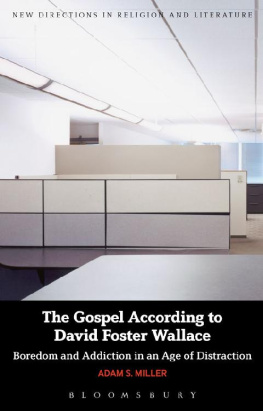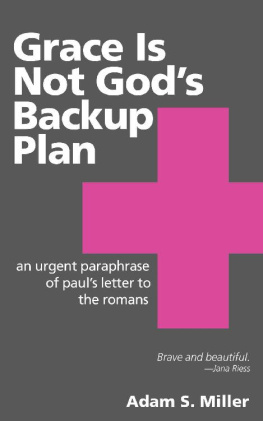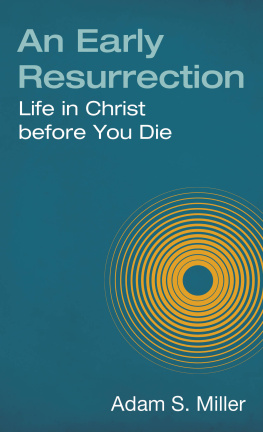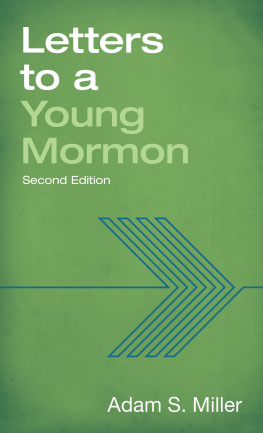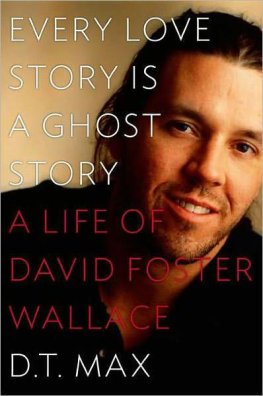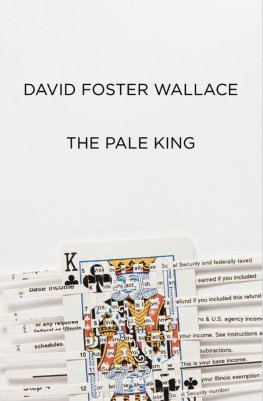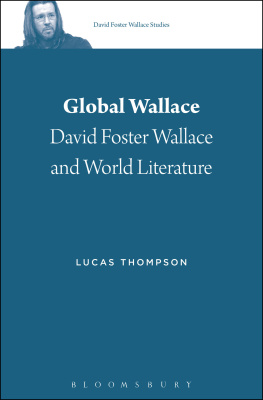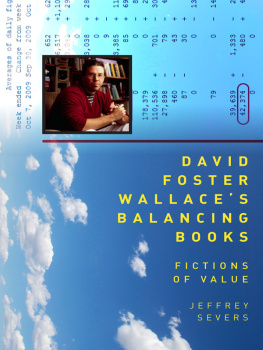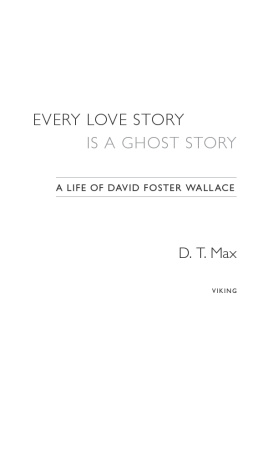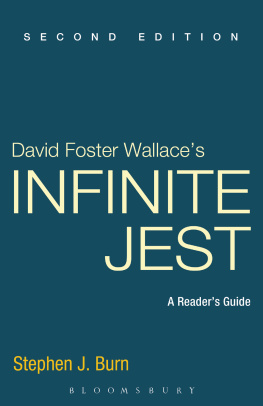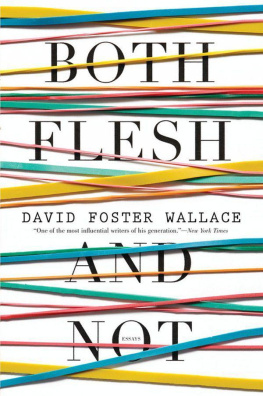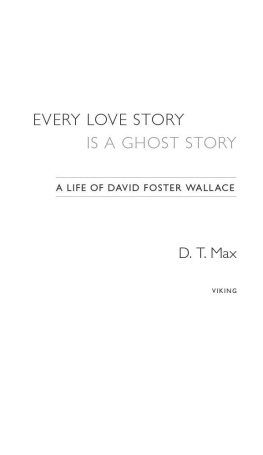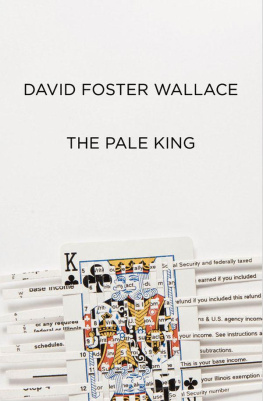
The Gospel
According to
David Foster
Wallace
NEW DIRECTIONS IN RELIGION AND LITERATURE
This series aims to showcase new work at the forefront of religion and literature through short studies written by leading and rising scholars in the field. Books will pursue a variety of theoretical approaches as they engage with writing from different religious and literary traditions. Collectively, the series will offer a timely critical intervention to the interdisciplinary crossover between religion and literature, speaking to wider contemporary interests and mapping out new directions for the field in the early twenty-first century.
ALSO AVAILABLE FROM BLOOMSBURY:
Blake. Wordsworth. Religion, Jonathan Roberts
Dante and the Sense of Transgression, William Franke
Do the Gods Wear Capes?, Ben Saunders
Englands Secular Scripture, Jo Carruthers
Forgiveness in Victorian Literature, Richard Hughes Gibson
Glyph and the Gramophone, Luke Ferretter
The Gospel According to the Novelist, Magdalena Mczyska
Jewish Feeling, Richa Dwor
John Cage and Buddhist Ecopoetics, Peter Jaeger
Late Walter Benjamin, John Schad
The New Atheist Novel, Arthur Bradley and Andrew Tate
Rewriting the Old Testament in Anglo-Saxon Verse, Samantha Zacher
Victorian Parables, Susan E. Coln
The Willing Suspension of Disbelief, Michael Tomko
FORTHCOMING:
Faithful Reading, Mark Knight and Emma Mason
Romantic Enchantment, Gavin Hopps
Sufism in Western Literature, Art and Thought, Ziad Elmarsafy
The Gospel
According to
David Foster
Wallace
Boredom and addiction in an age of distraction
ADAM S. MILLER
Bloomsbury Academic
An imprint of Bloomsbury Publishing Plc

For Jamie Smith
Contents
CD | Burn, Stephen J., ed. Conversations with David Foster Wallace. Jackson: University Press of Mississippi, 2012. |
NU | Dostoevsky, Fyodor. Notes from Underground. Translated and edited by Michael R. Katz. New York: W. W. Norton and Company, 2001. |
AS | Dreyfus, Hubert and Sean Dorrance Kelly. All Things Shining: Reading the Western Classics to Find Meaning in a Secular Age. New York: Free Press, 2011. |
FA | Franzen, Jonathan. Farther Away. New York: Farrar, Straus and Giroux, 2013. |
RT | Lipsky, David. Although of Course You End Up Becoming Yourself: A Road Trip with David Foster Wallace. New York: Broadway Books, 2010. |
BF | Wallace, David Foster. Both Flesh and Not: Essays. New York: Little, Brown and Company, 2012. |
CL | Wallace, David Foster. Consider the Lobster and Other Essays. New York: Little, Brown and Company, 2005. |
IJ | Wallace, David Foster. Infinite Jest. New York: Little, Brown and Company, 1996. |
PK | Wallace, David Foster. The Pale King. New York: Little, Brown and Company, 2011. |
SF | Wallace, David Foster. A Supposedly Fun Thing Ill Never Do Again: Essays and Arguments. New York: Little, Brown and Company, 1997. |
TW | Wallace, David Foster. This Is Water: Some Thoughts, Delivered on a Significant Occasion, about Living a Compassionate Life. New York: Little, Brown and Company, 2009. |
I m serious about television. I watch it religiously. When I watch, I watch with forty years of practiced intensity. I turn off the lights and sit on the floor and cross my legs. I scoot up close to the warm plasma screen. I prefer to watch alone. Even if I run out of time to pray or mow the lawn or read to my kids, I find time to watch TV. I watch almost every day, usually at the same set times, and Im careful about what I watch. I read up on whats streaming now and whats coming next. I curate a list. Im looking for a particular kind of thing. Im loose with genres but Im looking, across the board, for something that is smart and beautiful and tinged with tragedy. Drama or comedy or documentary or March Madness, it needs to skirt the absurd without succumbing to absurdity. It needs a literary mood. It needs to hint at absent gods. It needs mythos.
Im careful about this because I want to wring more from TV than just distraction. I want transcendence. David Foster Wallace recognizes the impulse. Television offers way more than distraction. In lots of ways, television purveys and enables dreams, and most of these dreams involve some sort of transcendence of average daily life (SF 39). When I watch TV, Im looking for something that, a hundred years ago, I would have looked for at a Mass or in a mosque or deep inside a Zen monastery. Im looking for what used to be, more or less exclusively, the business of religion. I want to worship. And clearly, regardless of my real religious commitments, at least part of me thinks my best shot at immediate transcendence is through a piece of furniture in my living room. Otherwise, why all the care and devotion? The things significance is framed, centered, and enshrined on my wall: mounted glass and electric light, a consumer-friendly transcendence machinereligion in a box. These days, churches arent competing with other churches for true believers, theyre competing with the National Football League.
This project is bound to fail. I know this both in principle and practice. Disappointment is inevitable. Im aiming at an idol that, however clever and beautiful, cant bear the weight of my devotion. While the impulse to worship, the impulse to aim myself at something, is primal, the failure of our idols is just as certain. Their failure is as original as our wanting them to succeed. TV is no different. Its no better or truer a god. I know this. But it hasnt stopped me from queuing up again.
Whats to be done? Even if you disavow religion (or television) altogether, you cant avoid worship. The impulse to worship is a human problem, not a religious problem. In the day to day trenches of adult life, Wallace reminds us, there is actually no such thing as atheism. There is no such thing as not worshipping. Everybody worships (TW 98101). Try as you might, theres no place to hide from your yen for transcendence. And, more, theres no place to hide from the consequences of its failure. Choose your gods wisely but pretty much anything you worship will eat you alive (TW 102). Getting eaten alive by your idols is part of what it means to be human.
Its tempting to read this moment of disappointment, this moment when worship fails and transcendence collapses back into distraction, as cause for either condemnation or vindication. As grounds for condemnation, the moment of disappointment can be taken as more good evidence that the religious project is pointless. Worship doesnt work. It never has before and now, despite whatever local heights you may have reached, it has definitely failed again. But the opposite verdict is also possible. This disappointment can be read as a vindication of religion, as good evidence that worshiping anything other than the one true God will cannibalize you every time. You werent wrong to worship, you just aimed at the wrong thing. Pick the right thing next time. The failure of a false god vindicates your hunger for the true one.
Next page
